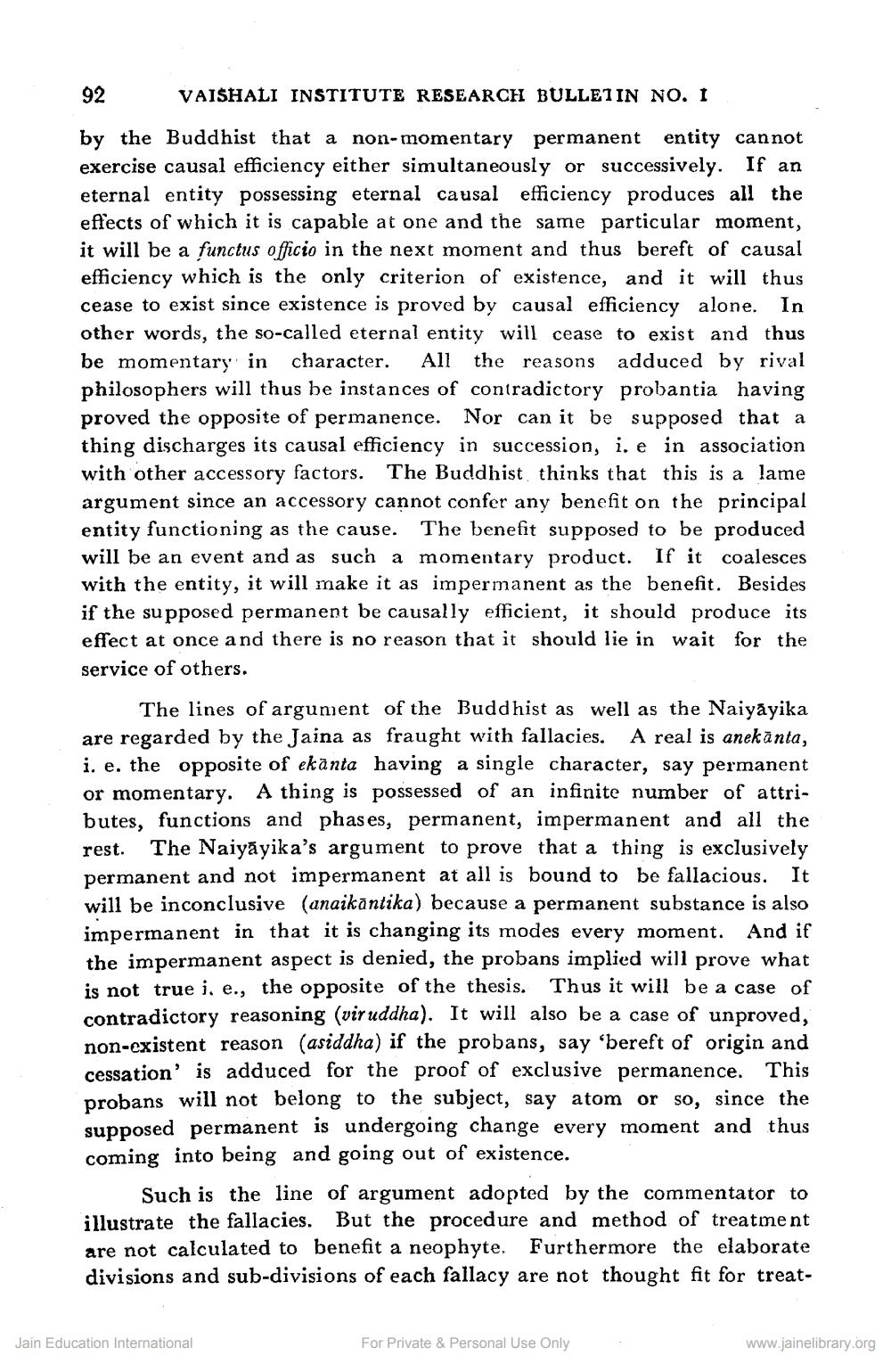________________
92
VAISHALI INSTITUTE RESEARCH BULLETIN NO. I
by the Buddhist that a non-momentary permanent entity cannot exercise causal efficiency either simultaneously or successively. If an eternal entity possessing eternal causal efficiency produces all the effects of which it is capable at one and the same particular moment, it will be a functus officio in the next moment and thus bereft of causal efficiency which is the only criterion of existence, and it will thus cease to exist since existence is proved by causal efficiency alone. In other words, the so-called eternal entity will cease to exist and thus be momentary in character. All the reasons adduced by rival philosophers will thus be instances of contradictory probantia having proved the opposite of permanence. Nor can it be supposed that a thing discharges its causal efficiency in succession, i. e in association with other accessory factors. The Buddhist thinks that this is a lame argument since an accessory cannot confer any benefit on the principal entity functioning as the cause. The benefit supposed to be produced will be an event and as such a momentary product. If it coalesces with the entity, it will make it as impermanent as the benefit. Besides if the supposed permanent be causally efficient, it should produce its effect at once and there is no reason that it should lie in wait for the service of others.
The lines of argument of the Buddhist as well as the Naiyāyika are regarded by the Jaina as fraught with fallacies. A real is anekānta, i. e. the opposite of ekānta having a single character, say permanent or momentary. A thing is possessed of an infinite number of attributes, functions and phases, permanent, impermanent and all the rest. The Naiyāyika's argument to prove that a thing is exclusively permanent and not impermanent at all is bound to be fallacious. It will be inconclusive (anaikāntika) because a permanent substance is also impermanent in that it is changing its modes every moment. And if the impermanent aspect is denied, the probans implied will prove what is not true i, e., the opposite of the thesis. Thus it will be a case of contradictory reasoning (vir uddha). It will also be a case of unproved, non-existent reason (asiddha) if the probans, say 'bereft of origin and cessation' is adduced for the proof of exclusive permanence. This probans will not belong to the subject, say atom or so, since the supposed permanent is undergoing change every moment and thus coming into being and going out of existence.
Such is the line of argument adopted by the commentator to illustrate the fallacies. But the procedure and method of treatment are not calculated to benefit a neophyte. Furthermore the elaborate divisions and sub-divisions of each fallacy are not thought fit for treat
Jain Education International
For Private & Personal Use Only
www.jainelibrary.org




